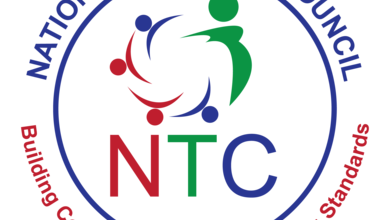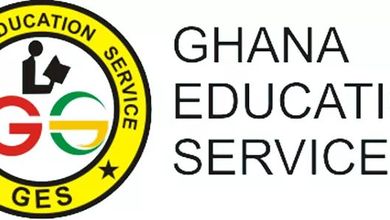Application for the Fulbright African Research Scholar Program is open
Application for the Fulbright African Research Scholar Program is open. Awards of 3 to 9 months are offered for Ghanaian university faculty or research institute professionals to conduct research in any academic discipline at a U.S. academic or research institution beginning no earlier than August 2024 and no later than March 2025.
The Public Affairs Section of U.S. Mission Ghana is pleased to announce the annual call for applications for the Fulbright African Research Scholar Program, also referred to as the Fulbright Visiting Scholar Program, for the 2024/2025 academic year.
The Fulbright African Research Scholar Program (FARSP) is funded by the U.S. Department of State and administered by the Institute of International Education (IIE).
OVERVIEW:
The Fulbright ARSP offers faculty members from tertiary or research institutions in Ghana the opportunity to take part in two categories of grants: Research Grants and Program and Curriculum Development Grants.
Research Grants:
Awards of 3 to 9 months are offered for Ghanaian university faculty or research institute professionals to conduct research in any academic discipline at a U.S. academic or research institution beginning no earlier than August 2024 and no later than March 2025. Applicants must hold a doctorate or equivalent terminal degree in their fields at the time of application. Important! Preference will be given to individuals who have at least three years of university teaching experience and a productive scholarly record.
Program and Curriculum Development Grants:
Awards of 3 to 5 months are offered for Ghanaian university faculty or administrators to conduct research in any academic discipline at a U.S. academic or research institution beginning no earlier than August 2023 and no later than March 2024. Proposals should be linked to professional duties and demonstrate how the scholar will use the knowledge gained to develop new courses, curricula, or other academic programs at the home institution. These grants are designed for university faculty or administrators with less experience and who may not have had recent access to research or instructional developments in their disciplines. Important! A doctorate degree is not required, but applicants must hold a minimum of a master’s or equivalent graduate degree at the time of application.
ELIGIBILITY CRITERIA:
- Ghanaian citizen or permanent resident and currently residing in Ghana Ghanaian citizen or permanent resident and currently residing in Ghana (Please note: Ghanaian nationals with dual U.S. citizenship are not eligible for the program).
- Employed as required based on the type of grant you are applying for:
- Research Grants – Ghanaian university faculty or research institute professionals; at least three years of university teaching experience and a productive scholarly record is preferred.
- Program and Curriculum Development Grants – Ghanaian university faculty or administrators; designed for university faculty or administrators with less experience and who may not have had recent access to research or instructional developments in their disciplines.
- Academic degrees as required based on the type of grant you are applying for:
- Research Grants – a doctorate or equivalent terminal degree in their fields at the time of application
- Program and Curriculum Development Grants – a minimum of a master’s or equivalent graduate degree at the time of application (a doctorate degree is not required)
- High prospect of receiving study leave from applicant’s employer.
- Applicants must have sufficient proficiency in English to carry out their research projects and collaborate effectively with colleagues. (Note: TOEFL exams are not required, but the U.S. Embassy’s Fulbright Review Committee may evaluate English-language proficiency).
- Applicants must be in good health. Successful candidates will be asked to submit a Medical History and Examination Report.
Important – Additional Ineligibility Factors
- Applications for doctoral dissertation research, postdoctoral research immediately following the completion of a doctorate degree, or general professional travel, are ineligible.
- Proposals that include any clinical medical research involving patient contact cannot be approved under the Fulbright Program.
- Individuals in their year of National Service are ineligible.
QUALITIES OF A COMPETIVE CANDIDATE
Applications should align with U.S. Foreign Policy Goals: bolster peace and security; spur environmentally sustainable economic growth, trade and investment; promote opportunity and development by investing inclusively in people; and improve accountable governance and strengthen democratic institutions. Learn more – Integrated Country Strategies – United States Department of State.
Persons from underrepresented groups including women, persons from rural communities or with disabilities are encouraged to apply (reasonable accommodation will be provided for individuals with disabilities interested in applying upon request. Please contact us at AccraExchange@state.gov with “Request for Reasonable Accommodation” in the subject).
- Demonstrated leadership qualities
- High motivation and serious commitment to completing the program and returning to Ghana to apply knowledge at home institution or other institutions in Ghana
- Well-written, professional applications
- Strong connection to U.S. foreign policy priorities
- Clearly expressed reasons for selecting your U.S. university preferences, reflecting a thorough university search to identify institutions which are a strong fit for your academic, personal, and professional goals
- Preference is given to applicants with limited or no experience in the United States
- Preference will be given to candidates who have not previously received a Fulbright scholar grant.
APPLICATION AND INSTRUCTIONS
The application and instructions can be found at: https://apply.iie.org/fvsp2024/ .
Applicants should log onto the website, enter an e-mail address, and create a password. Please remember this password because it will be used throughout the application process. Applicants are also advised to read the instructions preceding the application. Check carefully for grammar and spelling mistakes. Do not plagiarize. Do not use capital letters (or “ALL CAPS”) to complete the application or required essays except for typing acronyms.
Important! Each application must include four (4) letters of reference. Letters of invitation are strongly encouraged but not required. Applicants are discouraged from requesting affiliation with an alma mater. The Fulbright Placement Team will honor institutional affiliation preferences as far as possible, but not guaranteed. Note: laboratory fees are not part of the standard benefits package for the FARSP. Applicants are encouraged to collect additional letters of invitation if laboratory fees are indicated by the original proposed host.
Proposals that include any clinical medical research involving patient contact cannot be approved under the Fulbright Program. Grantees will be asked to sign a no-patient contact agreement with their host institution.
PRO TIP: First formulate your application in a word document. Ask a fellow scholar to review your application, and then upload to the online form. Remember, your application is your ‘interview on paper’.
PROJECT PROPOSAL AND STATEMENT
When applying, you will be required to provide a brief summary of your project proposal and upload a more detailed Project Statement. There is no limit to the length of your Project Statement, but it should balance between being detailed and succinct. A quality Project Statement might include: background or purpose, literature review, aims and objectives, research questions, method or design, theoretical framework, significance, expected outputs and work plan, and references. Please note that there are strict guidelines about plagiarism.
PLAGIARISM POLICY
Plagiarism is using someone else’s words, ideas, or research as your own without crediting the source. If you use someone else’s works, research, or even your own published works, then you must utilize one of the following citation styles: APA, MLA or Chicago Style. When submitting applications, candidates will be required to read, accept, and adhere to the following information pertaining to plagiarism:
“The Fulbright Visiting Scholar Program seeks applicants whose writing achieves highest academic standards of original research, writing, and citation. The program application includes the opportunity to describe your academic work and research. Application materials will be processed using software to help identify any instance of plagiarism. Plagiarism in any part of your application will result in your disqualification from participation in the Fulbright Visiting Scholar Program.
ECA and IIE will follow the Oxford English Dictionary’s definition of plagiarism: Plagiarism is the wrongful appropriation or purloining and publication as one’s own, of the ideas, or the expression of the ideas, of another. It is expected that your project proposal will be your own work and writing, clearly citing secondary sources when describing the academic work and writing of others (including one’s own previously published work). Any sources used in the construction of your responses must be clearly cited in your project statement and bibliography.”
ADDITIONAL TIPS FOR A QUALITY APPLICATION
- A detailed and well-articulated description of the program you want to pursue. Use clear, concise language – say what you mean
- Explain why you are interested in this area and how the research fits into your future objectives and goals
- Articulate how your research interests are relevant to current trends/challenges in Ghana and how you will apply your research upon returning to Ghana
- While a Host Institution is not required at the time of completing an application, demonstrated evidence that you have researched possible institutions, mentors, and programs is highly valued
- Avoid vague or empty statements, clichés and cultural references that may not translate well to a U.S. audience
- Proofread your work and ask several individuals to proofread your Statement and offer their feedback (grammar and spelling mistakes will reflect poorly)
- Avoid too much overlap (or copy/paste) with other sections of your application package
- Be consistent in your style and format (spacing, font choice and size, etc.)
- Do not plagiarize
APPLICATION DEADLINE: May 31, 2023. The application and instructions can be found at: https://apply.iie.org/fvsp2024/
IMPORTANT! The U.S. academic calendar year begins in August (2024) and runs through the following May (2025). The U.S. Embassy Accra will not accept applications that begin outside of academic year 2024-2025.
Find detailed application information here: https://bit.ly/GhanaFulbrightARSP
US Embassy Ghana





